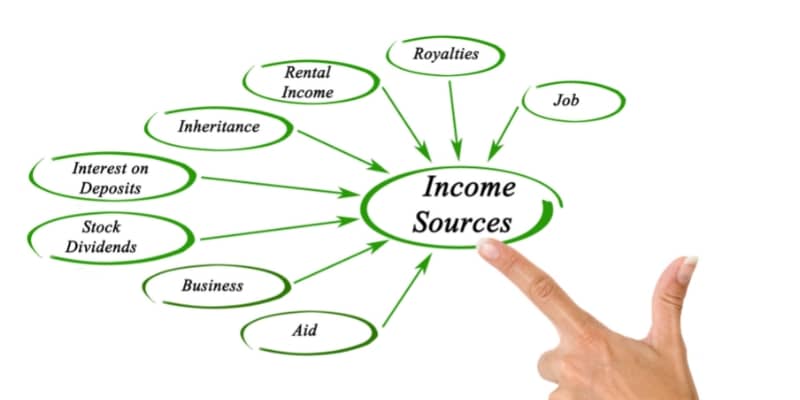Retirement planning in California is an important consideration for anyone living and working in the state. With the cost of living and taxes, it can be difficult to save for your future. To help Californians prepare for retirement, here are the top 5 retirement planning tips for Californians.
1: Consider your Age and Health

Retirement planning in California can be a tricky task, but it’s important to start early. One of the first things you should consider when preparing for retirement is your age and health. Depending on your age, you may need to make different plans or choose different options when it comes to retirement planning.
On the other hand, if you’re older, you may need to plan for additional sources of income or look into Social Security benefits. Additionally, if you have any health concerns, you may need to factor these into your retirement plan as well.
No matter what your age or health status is, it’s important to have an understanding of the retirement planning process in California. Researching the different types of retirement accounts and investments available can help you make informed decisions and ensure that your retirement is secure.
2: Decide What Type of Lifestyle you Want in Retirement
Retirement planning in California is unique compared to other states, given the high cost of living in the state and a large number of retirees in the area. Whether you’re already retired or planning for retirement, there are some important steps you should take to make sure that your retirement is as comfortable and financially secure as possible.
One of the most important steps you can take in your retirement planning is deciding what type of lifestyle you want to have in retirement. Do you want to remain in the same home you’re currently in or move somewhere with a lower cost of living? Will you stay in California or relocate? Thinking about these questions ahead of time will help you make better decisions when it comes time to make a financial plan.
It’s also important to consider the costs associated with retirements, such as health care and taxes. These costs can vary from state to state and should be taken into consideration when creating your retirement plan. Additionally, it’s important to think about how you want to pass on any assets or property when you pass away.
3: Consider your Sources of Income

When it comes to retirement planning in California, there are a few key sources of income to consider. Social Security and pensions are two of the most common, but there are other options available as well. To maximize your retirement savings and ensure that you have enough money to live comfortably in your golden years, it’s important to think about how each of these income sources can help you reach your goals.
Social Security is an important part of retirement planning in California, as it can provide a steady stream of income in retirement. Certain qualifications must be met to receive Social Security benefits, so be sure to check with the Social Security Administration to find out what you need to do.
Pensions can also be a great source of income in retirement. Many employers offer pensions to their employees, so be sure to check if this is an option for you. It’s important to understand the specifics of any pension plan you’re considering, as some may have restrictions or benefits that make them more or less attractive than others.
4: Review your Expenses
When it comes to retirement planning in California, one of the most important steps you can take is to review your expenses. By understanding how much you’re spending now and where your money is going, you can begin to make decisions about where to allocate your funds for retirement.
The first step is to track your spending over some time. You can do this manually, using an excel spreadsheet or online budgeting tool, or you may prefer to use an automated tracking app. Whichever method you choose, make sure that you are logging all of your expenses, including monthly bills, groceries, dining out, entertainment, and other miscellaneous items.
Once you have tracked your expenses for a few months, it’s time to analyse the data. Look for patterns or areas of potential savings. For example, if you’re spending a lot on dining out, could you be more mindful and instead cook meals at home? Are there services you could be taking advantage of that could help reduce your monthly expenses? This data will give you a clear picture of how you are spending and provide insights into how to maximize your savings and prepare for retirement.
5: Get Professional Help

Retirement planning in California can seem like a daunting task, especially for those who are new to the process. But with some research and guidance from professionals, you can ensure that your retirement plans are well-thought-out and successful. Here are five tips to get you started on your retirement planning in California:
a) Get Professional Help: The best way to ensure you have a comprehensive and successful retirement plan is to enlist the help of a professional financial advisor or retirement planner. They can help you assess your current finances and craft a plan tailored to your goals and risk tolerance.
b) Understand Your Investment Options: There are many different types of investments available in California, including stocks, bonds, mutual funds, and real estate. Learning more about the different types of investments and their benefits can help you decide which ones may be best suited for your retirement goals.
c) Consider Taxes: Taxes can have a significant impact on your retirement savings. Before investing, it’s important to understand how different investments are taxed and how that could impact your overall savings.
d) Save Early: The earlier you begin saving for retirement, the more time your money has to grow. Investing as early as possible and contributing regularly to your retirement accounts can lead to greater returns over time.
e) Monitor Your Investments: Regularly tracking the performance of your investments can help you stay on top of any changes or potential risks that could affect your retirement savings. It’s important to review your portfolio periodically to make sure it’s still in line with your retirement goals.





